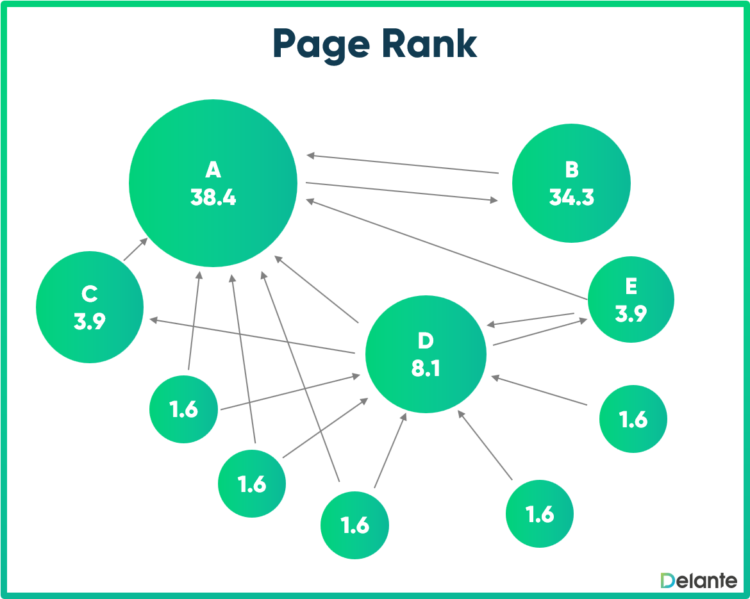What is PageRank? – Definition
PageRank is the first Google algorithm developed to evaluate the quality and importance of web pages. It assigned a specific number value from 0 to 10 to the indexed pages, where 0 indicates the lowest and 10 – the highest quality.
History of PageRank
The algorithm was developed by Larry Page and Sergey Brin, the founders of Google, during their studies at Stanford University. What’s interesting, the PageRank algorithm was named after Larry Page and the concept of web pages.
What is PageRank? The name of the algorithm is a trademark of Google. PageRank was patented in 1998 by Stanford University, and the license rights were passed to Google for 1.8 million shares, which in 2005 was worth $336 million.
What’s important, since 2016 PageRank data is no longer available – it became private. We can’t be sure if the data is still being used. Due to the changes, SEO tools have created their own page quality metrics:
- Domain Authority (DA) and Page Authority (PA) in Moz,
- Trust Flow (TF) and Citation Flow (CF) in Majestic,
- Domain Rating (DR) and URL Rating (UR) in Ahrefs.
PageRank Algorithm
The simplified model of the algorithm looks as follows:
- PR – Page Rank of a given page,
- d – damping factor, usually around 0.85,
- N – the number of web pages,
- L – the number of backlinks pointing to a given web page.




